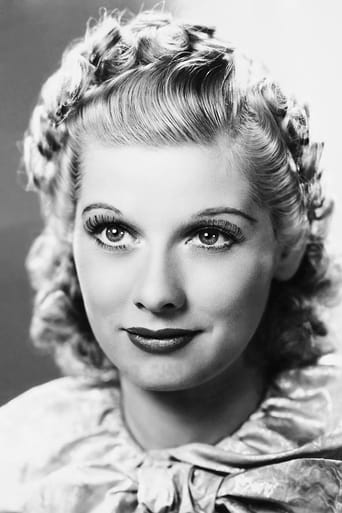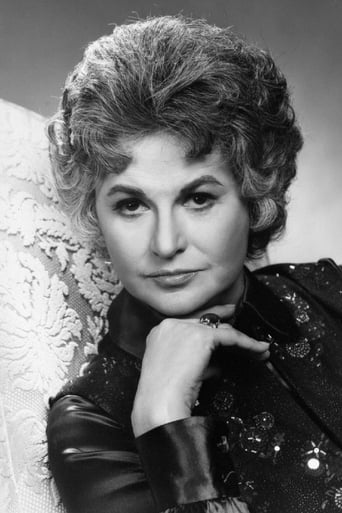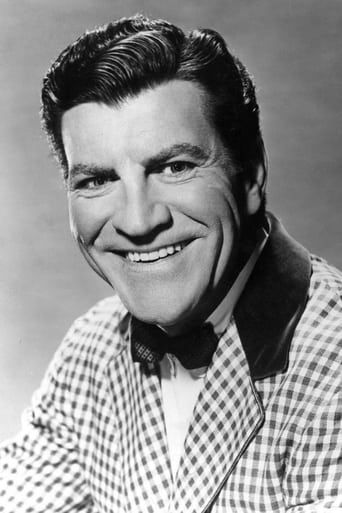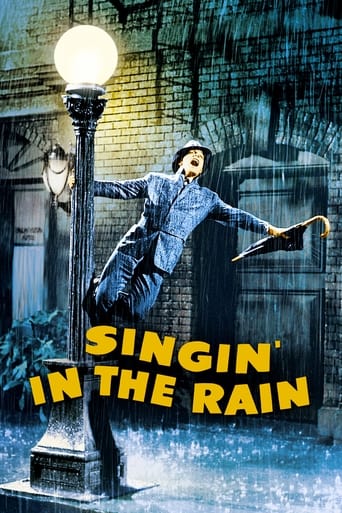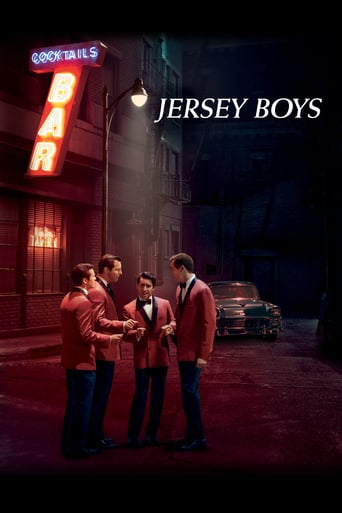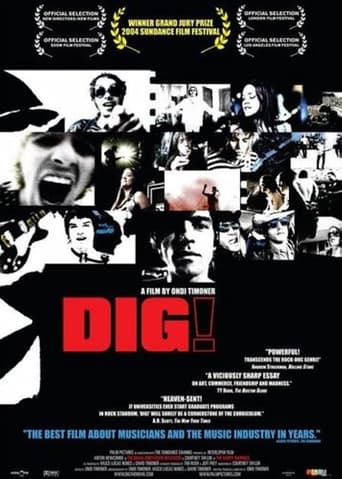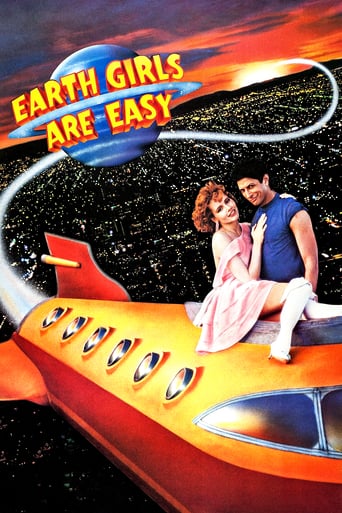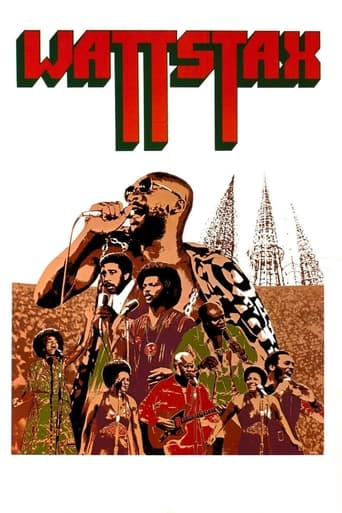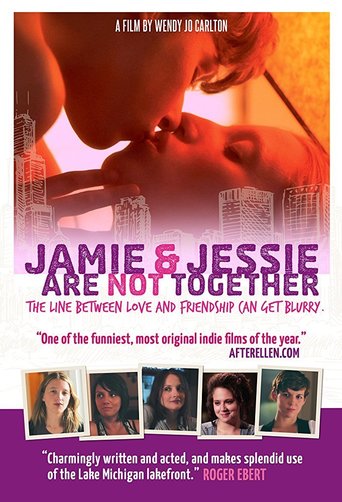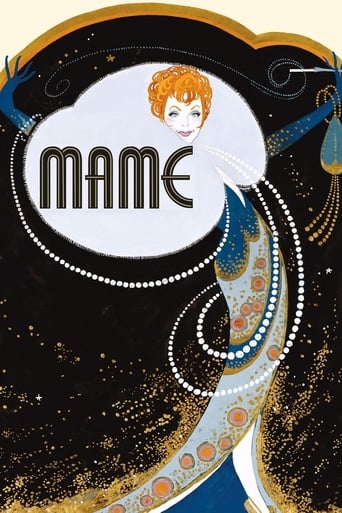
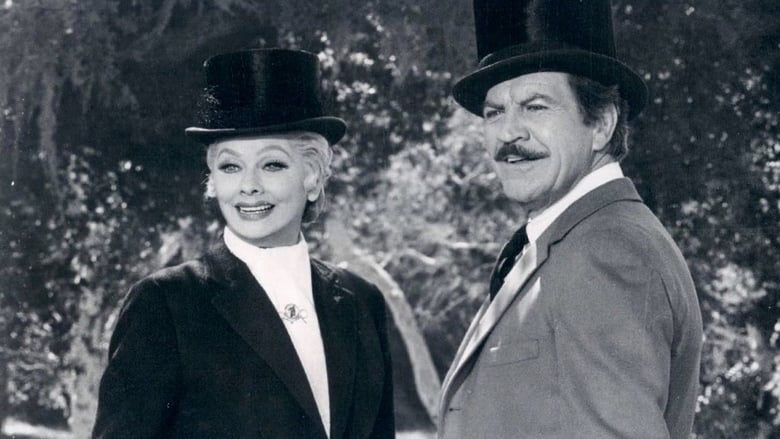
Mame (1974)
The madcap life of eccentric Mame Dennis and her bohemian, intellectual arty clique is disrupted when her deceased brother's 10-year-old son Patrick is entrusted to her care. Rather than bow to convention, Mame introduces the boy to her free-wheeling lifestyle, instilling in him her favorite credo, "Life is a banquet, and most poor sons of bitches are starving to death."
Watch Trailer
Cast
Similar titles

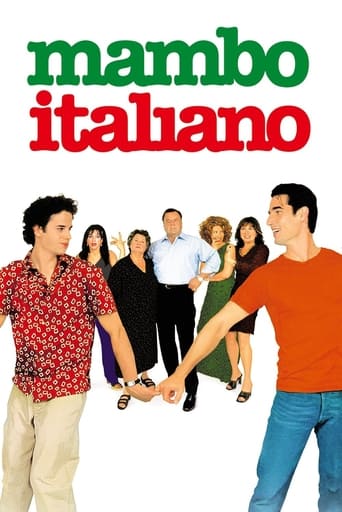
Reviews
As Good As It Gets
It's entirely possible that sending the audience out feeling lousy was intentional
When a movie has you begging for it to end not even half way through it's pure crap. We've all seen this movie and this characters millions of times, nothing new in it. Don't waste your time.
The story, direction, characters, and writing/dialogue is akin to taking a tranquilizer shot to the neck, but everything else was so well done.
Even before I saw Mame, back in 1973, or '74, I questioned how anyone could think Lucille Ball (of whom I was and am a huge fan) could be right to play the sophisticated-but-with-a-heart-of-gold Auntie Mame. She just had no Mame-like qualities. A lot of the humor of the earlier, non-musical version is just missing here. The Upsons, for example, were funny parodies of upper middle class suburban snobs in the original. No parodies, here; they're just cold and mean. There even seems to be an effort to make the story into a heartrending Stella Dallas-like drama, at times. The touch is heavy where it should be light.Yes, it probably should have been Angela Lansbury, but when has Angela Lansbury ever carried a major film? Bedknobs and Broomsticks? Frankly I doubt she could have rescued this turgid mess, either, and when all is said and done, she's no Rosalind Russell.A bright spot in the mire is Joyce Van Patten, who does a lot with a little as malicious Southern belle Sally Cato. And Robert Preston does well, acting and singing, as Beau. Jane Connell, who replaced Madeleine Kahn, had played Gooch on Broadway 10 years earlier. At almost 50, playing a hapless, soon-to-be-unwed-mother, singing "What Do I Do Now?", she's more pathetic than humorous. The 1958 film had scope. Good storytelling and dramatics. Charm, lightness, sophistication. Good design and direction. And most of all, intelligence. Roz Russell was brilliant, and that certainly helped a lot. This film seems so puny, heartless, flat, and even absurd, at times. You may find yourself shaking your head a lot.
I can quote the lines from "Auntie Mame" pretty much from beginning to end, even though it was this version that I first saw on its TV premiere in the mid 1970's. I was a young, unsophisticated pre-teen at the time, so I thought it was sensational. That, on top of having the original Broadway cast recording, made this one of my first favorite Broadway musicals. Then, I was introduced to "Auntie Mame", and after reading about what a flop this one was, I snootily began to dismiss it myself, even though I enjoyed the musical selections I would see from time to time in nightclubs that specialized in showtune videos.25 years after giving this a ** (out of ****) rating, I have re-discovered it, and found much to appreciate, if not rave about it. Rosalind Russell, as Auntie Mame, became alive to me in this part, and hearing Angela Lansbury on the Broadway cast album made me think that nobody but those two people could play this part successfully (with the exception of a few of Lansbury's replacements). I have seen several productions of each version, and have to admit, it is a difficult role to play, mainly because the memory of those two performances is difficult to erase. The problem with Lucy's version is not only that she was about 10 years too old to play the part (and couldn't sing), it was the fact that she is begging for the audience's acceptance, and that takes away from the spontaneity of her performance. There are moments when she allows herself to relax in the part, and is indeed as good as her predecessors. However, in a few sequences, you forget she's playing this elegant NY matron with a lust for life as she sinks back into Lucy Ricardo, Carmichael, or Carter, such as hobbling about with one roller skate on, or being stuck to her horse during the foxhunt. The overusage of hugs, too, makes Lucy's desire to get the audience's approval slightly unbearable, as does the unnecessary use of flashbacks towards the end.Beatrice Arthur perfectly recaptures the role of Vera Charles, and when she says "pity" to the identification of Gloria Upson, it is pure elegant bitchery, like Tallulah Bankhead would have done. Jane Connell is fun, if a bit late in the game to be believable as Gooch, and the overabundance of her big belly when she comes back pregnant is too much. Thank God though they kept in Gooch's song. Robert Preston is simply divine. I can't think of anybody better to portray Beaugard, especially since he was preparing to star in Jerry Herman's "Mack and Mabel" on Broadway.As for the supporting players, I was disappointed as to their lack of eccentricities as seen in "Auntie Mame". Here, Babcock and the Upsons are presented without much flair, as opposed to the hysterical "top drawer" (said with teeth clenched) personas that showed how ridiculous they were. By taking away Mame's writing her story, this also took away Gloria Upson's hysterical "ping pong" story, one of the highlights of the non-musical film. Of the minor characters, Lucille Benson's Mother Burnside and Joyce Van Patten's Sally Cato stand out.This is a physically gorgeous production, with lavish (and sometimes over the top) costumes by Theodora Van Runkle and breathtaking art direction. The photography, which softens Lucy's face, does make her show her age in the early sequences where Mame has dark hair, is for the most part outstanding, particularly in the wonderful title song sequence. Bea Arthur's costumes, which some critics said made her look like a football player in drag, aren't all that garrish, except for the outfit she wears in her longest sequence, singing "Boosom Buddies" with Mame and helping her change Gooch's image. She is hysterical in the "Man in the Moon" sequence, and there is a wonderful exchange in her dressing room after the number is over with her dresser. Ball's singing, which slows down the upbeat "It's Today" sequence considerably (except when the chorus comes in), works well with Arthur in their duet together, but sadly, "If He Walked into My Life" looses its impact. You can't really watch this one without comparing it to Rosalind Russell's version, but you'll enjoy it much more if you suppress that desire and find the joy that is there.
I won't belabor the point made by numerous other posters about how wrong for this role the non-singer/non-dancer, 63-year old Lucille Ball was. I'll just remind folks that THERE WAS A REASON why Ricky tried desperately to keep Lucy out of show biz for all those years!Unfortunately, "Mame" probably would have been a flop under the best of circumstances, coming as it did at the tail end (and I mean the very tip of the tail!) of the traditional Hollywood musical. Despite pouring tens of millions into big-budget musicals during the latter half of the Sixties (several of which nearly sank their respective studios!), by the early Seventies it was painfully apparent that the musical was in it's death-throws. 1972's "Man of La Mancha" and 1973's "Lost Horizon" really put the final nails in the coffin... sadly at the time, no one knew the Last Rites had been performed and they went on with this travesty of a movie. Interesting that it took MGM's retro masterpiece "That's Entertainment" (also released in 1974) for movie-goers to finally realize the old-time Hollywood musical was dead as a doornail. I personally remember the startling contrast between "That's Entertainment" and "Mame" when I saw them both in theaters.Still, financial considerations aside, the producers could have at least opted for a good picture, even if it did end up losing money. Some financial flops, such as 1968's "Finian's Rainbow", are at least nowadays rather well regarded. Some posters have mentioned Rosalind Russell's great turn in 1958 non-musical "Auntie Mame", and it's worth considering what she might have made of the musical role. Though never considered a singer, Miss Russell did a very creditable job as Mama Rose in 1962's "Gypsy". Her low, gravelly voice worked fine in the part, something the producers of "Mame" no doubt hoped to emulate with Miss Ball... sorry, didn't work. Sad that "Mame" came to the screen so late, and Miss Russell was not only aged, but I believe even then suffering from the cancer that finally took her life in 1976.Another obvious choice for the title role would have been the actress who made the part her own during it's long Broadway run -- Angela Lansbury! Her singing and acting skills had a huge part in making the Broadway production such a success. I grew up listening to the Original Cast album, and can say that the gifted Miss Lansbury was perfect for the role, yet without being too "stagy" and "overbearing", in the manner Ethel Merman and Carol Channing always came across on film. Unfortunately, they followed the time-honored tradition of casting a "big name" in the role, feeling Miss Lansbury didn't have enough "star power" for the movie version (that, and Lucy's obsession with playing the role). Ironically, that same type error, made a couple years earlier in "Man of La Mancha" (passing over the talented, beautifully voiced Richard Kiley for the non-singer Peter O'Toole) doomed that film to well-deserved obscurity. What "Mame" might have been with Angela Lansbury reprising her stage role is something we're left to speculate on.
In this musicalized version of "Auntie Mame," an orphaned boy shows up at the door of his rich, eccentric aunt, leading to heart-warming and hilarious comedy...at least that was the intent, but the execution is mostly lame. There's little rhyme or reason to the plot, as it rambles on and on for much too long. In her final film appearance, Lucy gives it the old college try, but she is just too old for the title character. The characters are cartoony and the film looks very cheap, more like a TV movie than a theatrical release. Saks (Arthur's husband at the time), who usually worked with Neil Simon, does little to enliven the film.
